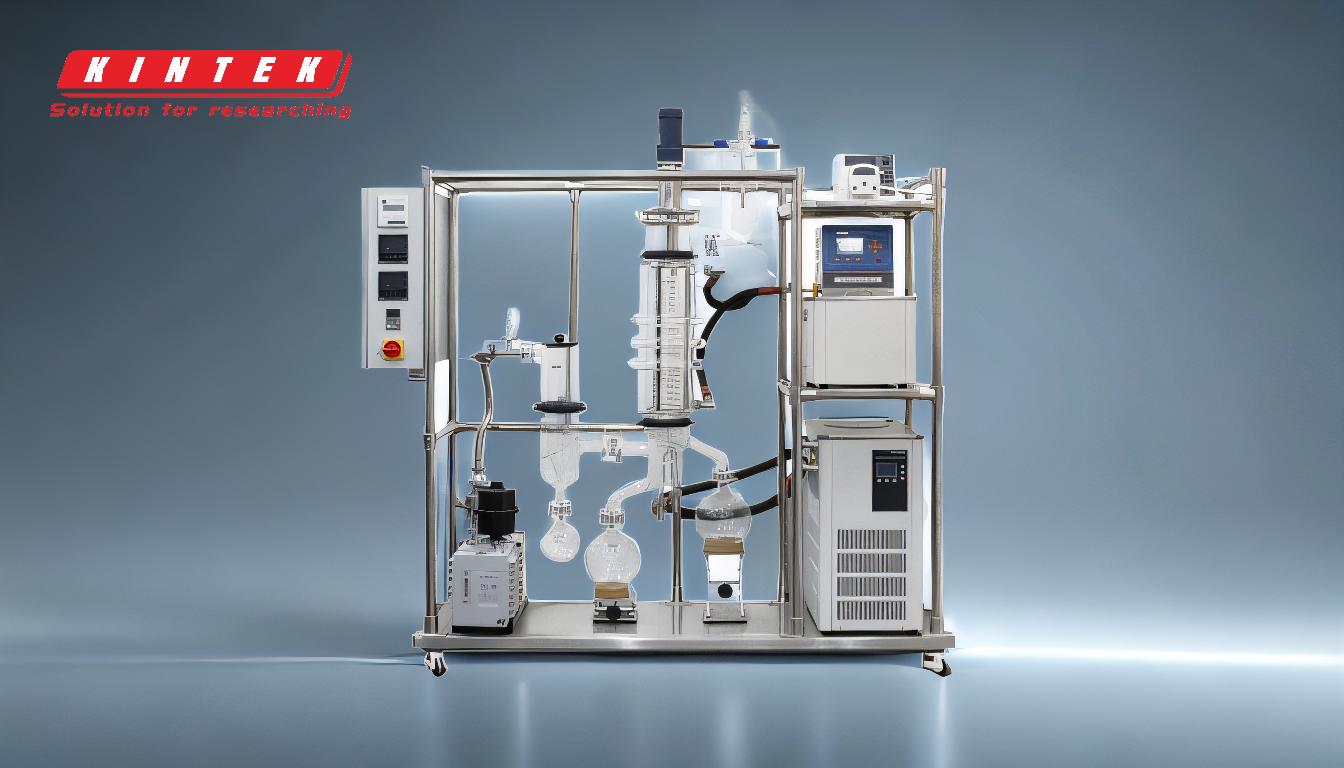Pressure plays a critical role in the distillation process, particularly in systems like rotary evaporators (rotovaps). By lowering the pressure, the boiling point of the substance being distilled is reduced, enabling faster and more efficient separation at lower temperatures. This is especially beneficial for heat-sensitive materials. However, maintaining a balance between pressure, temperature, and feed rate is essential to ensure consistent separation efficiency and product quality. The vacuum system's tightness, the power of the vacuum pump, and the materials used in sealing components also significantly influence the process. Understanding these factors helps optimize distillation for specific applications.
Key Points Explained:

-
Pressure and Boiling Point Relationship:
- Lowering the pressure reduces the boiling point of the substance being distilled.
- This allows distillation to occur at lower temperatures, which is particularly advantageous for heat-sensitive materials.
- Example: In a rotovap, reducing the vacuum pressure enables faster evaporation without exposing the product to excessive heat.
-
Impact on Distillation Efficiency:
- A lower boiling point achieved through reduced pressure speeds up the distillation process.
- However, the vacuum level must be carefully controlled to balance efficiency and equipment safety.
- Overly low pressure can strain the system, while insufficient vacuum may slow down the process.
-
Importance of Steady Operating Conditions:
- Maintaining a consistent feed rate, body temperature, and vacuum level is crucial for consistent separation efficiency and product quality.
- Fluctuations in these parameters can lead to uneven distillation and compromised product purity.
-
Role of Vacuum System Components:
- The vacuum pump's power and the system's tightness directly affect the achievable vacuum level.
- Key components like sealing rings and vacuum tubes must be made of durable materials (e.g., PTFE) to ensure long-term performance and resistance to wear and corrosion.
-
Trade-offs in Temperature and Pressure:
- While higher temperatures can increase the evaporation rate, they may also reduce separation efficiency and risk degrading heat-sensitive materials.
- An optimal balance between temperature and pressure must be determined based on the thermal stability of the material being distilled.
-
Practical Considerations for Rotary Evaporators:
- In rotovaps, the combination of reduced pressure and controlled heating allows for gentle and efficient distillation.
- The system's design, including the vacuum pump and sealing components, must support the desired pressure range without compromising safety or performance.
By understanding how pressure affects distillation, operators can optimize their processes to achieve faster, more efficient, and higher-quality separations, particularly when working with sensitive materials.
Summary Table:
| Key Factor | Impact on Distillation |
|---|---|
| Pressure and Boiling Point | Lower pressure reduces boiling points, enabling faster distillation at lower temperatures. |
| Distillation Efficiency | Controlled vacuum levels speed up the process while ensuring equipment safety. |
| Steady Operating Conditions | Consistent feed rate, temperature, and vacuum levels ensure high-quality separations. |
| Vacuum System Components | Durable materials and tight seals maintain optimal vacuum levels for long-term performance. |
| Temperature-Pressure Balance | Balancing these factors prevents material degradation and improves separation efficiency. |
Optimize your distillation process with expert guidance—contact us today!










